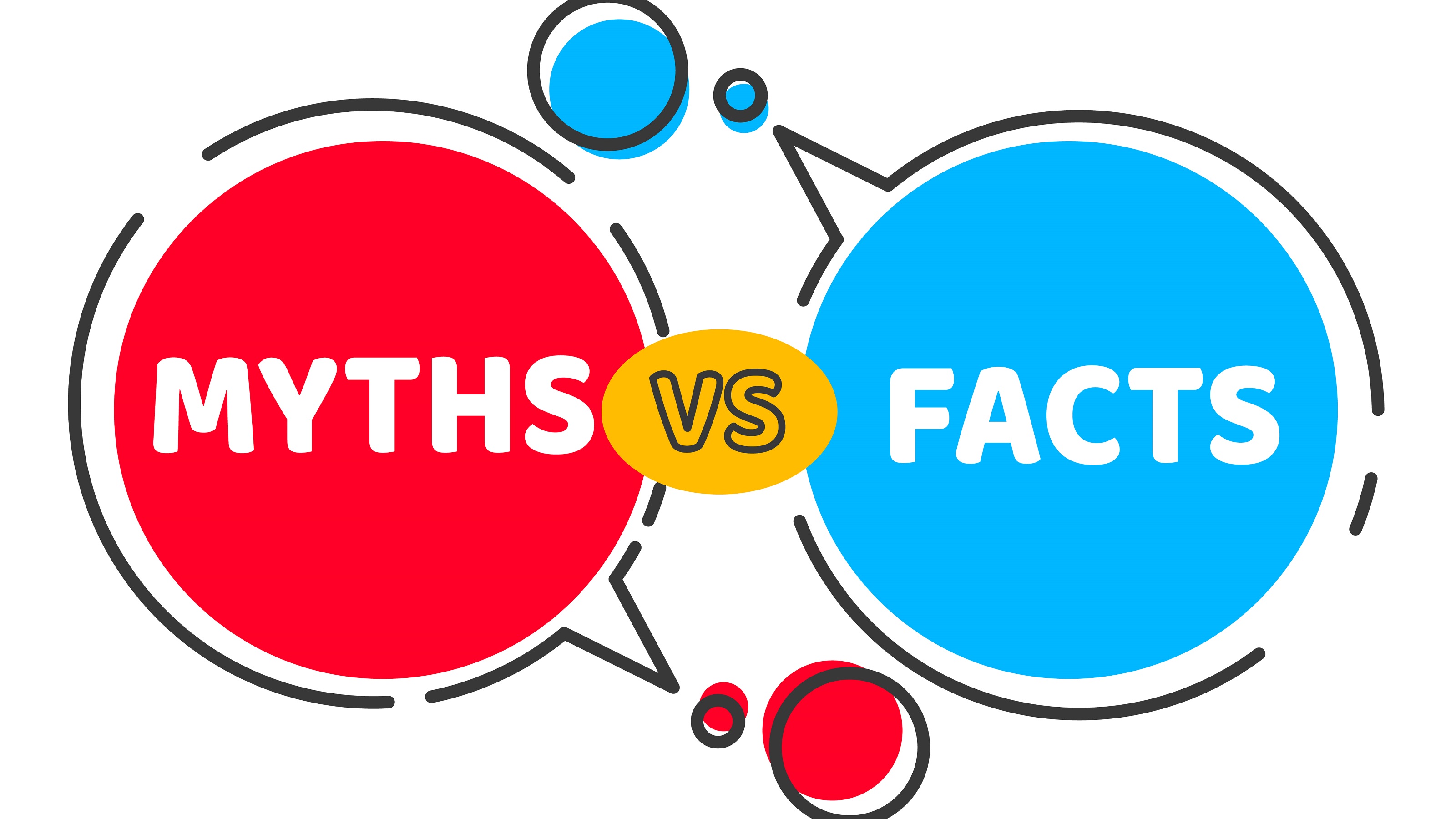Top 10 Myths About 1031 Exchanges, Debunked
Are you confused about 1031 exchanges? This brief guide busts the top myths about real estate's favorite tax-deferral strategy.


Profit and prosper with the best of Kiplinger's advice on investing, taxes, retirement, personal finance and much more. Delivered daily. Enter your email in the box and click Sign Me Up.
You are now subscribed
Your newsletter sign-up was successful
Want to add more newsletters?

Delivered daily
Kiplinger Today
Profit and prosper with the best of Kiplinger's advice on investing, taxes, retirement, personal finance and much more delivered daily. Smart money moves start here.

Sent five days a week
Kiplinger A Step Ahead
Get practical help to make better financial decisions in your everyday life, from spending to savings on top deals.

Delivered daily
Kiplinger Closing Bell
Get today's biggest financial and investing headlines delivered to your inbox every day the U.S. stock market is open.

Sent twice a week
Kiplinger Adviser Intel
Financial pros across the country share best practices and fresh tactics to preserve and grow your wealth.

Delivered weekly
Kiplinger Tax Tips
Trim your federal and state tax bills with practical tax-planning and tax-cutting strategies.

Sent twice a week
Kiplinger Retirement Tips
Your twice-a-week guide to planning and enjoying a financially secure and richly rewarding retirement

Sent bimonthly.
Kiplinger Adviser Angle
Insights for advisers, wealth managers and other financial professionals.

Sent twice a week
Kiplinger Investing Weekly
Your twice-a-week roundup of promising stocks, funds, companies and industries you should consider, ones you should avoid, and why.

Sent weekly for six weeks
Kiplinger Invest for Retirement
Your step-by-step six-part series on how to invest for retirement, from devising a successful strategy to exactly which investments to choose.
In the world of real estate investing, few topics are as misunderstood as the 1031 exchange rules.
Named after Section 1031 of the Internal Revenue Code, this powerful tax-deferral strategy has been the subject of more myths than Bigfoot and the Loch Ness Monster combined. Today, we're going to dive into the murky waters of 1031 exchange misconceptions and emerge with clarity, humor and, hopefully, a better understanding of this invaluable tool.
1. 'A 1031 exchange is just a way for the rich to avoid paying taxes'
Ah, the classic "tax loophole for the wealthy" misconception. While it's true that many high-net-worth individuals use 1031 exchanges, they're not exclusive to the country club set. In reality, 1031 exchanges are available to anyone who owns investment or business property. Whether you're a small-time landlord with a single rental house or a corporate real estate mogul, the 1031 exchange doesn't discriminate. It's less about avoiding taxes and more about deferring taxes to reinvest in new properties. Think of it as the government's way of saying, "Keep growing your real estate empire, and we'll talk taxes later."
From just $107.88 $24.99 for Kiplinger Personal Finance
Become a smarter, better informed investor. Subscribe from just $107.88 $24.99, plus get up to 4 Special Issues

Sign up for Kiplinger’s Free Newsletters
Profit and prosper with the best of expert advice on investing, taxes, retirement, personal finance and more - straight to your e-mail.
Profit and prosper with the best of expert advice - straight to your e-mail.
2. 'You can exchange any type of property in a 1031 exchange'
If only it were that simple. Unfortunately, you can't swap your collection of rare Beanie Babies for a beachfront condo and expect the IRS to give you a thumbs-up. 1031 exchanges are specifically for real property used for investment or business purposes.
Your primary residence? Sorry, that's a no-go. Your vintage car collection? Nope. Your cryptocurrency? Not a chance. The key here is "like-kind" real estate. But don't worry, the definition of "like-kind" is broader than you might think. You can exchange a farm for an office building, or an apartment complex for raw land. Just remember: If it's not real estate, it's not eligible for a 1031 exchange.

Daniel is a Kiplinger.com contributor on various financial planning topics and has also been featured in U.S. News and World Report, FOX 26 News, Business Management Daily and BankRate Inc. He is the author of the book Live Smart - Retire Rich and is the Masterclass Instructor of a 1031 DST Masterclass at www.Provident1031.com. Daniel regularly gives back to his community by serving as a mentor at the Sam Houston State University College of Business.
3. 'A 1031 exchange means I'll never have to pay taxes on my real estate gains'
Wouldn't that be nice? Unfortunately, a 1031 exchange isn't a magical tax-disappearing act; it's more like a really long game of "kick the can down the road." You're deferring taxes, not eliminating them. Eventually, when you sell a property without doing another 1031 exchange, Uncle Sam will come knocking for his share. But here's the silver lining: If you keep exchanging properties until you pass away, your heirs can inherit the property at a stepped-up basis, potentially avoiding a significant portion of those deferred taxes (and maybe even close to 100% of them). It's like the ultimate long game in Monopoly, but with real money.
4. 'I have 45 days to identify a replacement property and 180 days to close the deal: That's plenty of time'
Oh, sweet summer child. If you think 45 days is a long time in the real estate world, you're in for a rude awakening. The 45-day identification period and 180-day closing period are set in stone by the IRS, and it waits for no one. Holidays, weekends, your cousin's destination wedding — none of these will extend your deadline. These time constraints can feel tighter than skinny jeans after Thanksgiving dinner.
Pro tip: Start looking for replacement properties before you even close on the sale of your relinquished property. Time management is key, unless you enjoy high-stakes, real estate-themed adrenaline rushes.
5. 'I can use the proceeds from my property sale however I want before reinvesting'
If you're picturing yourself lounging on a beach, sipping a piña colada bought with the proceeds from your property sale while you casually look for a replacement property, think again. One of the cardinal rules of a 1031 exchange is that you never, ever touch the money from the sale. It must go directly to a qualified intermediary. If you so much as glimpse those funds, your exchange could be disqualified faster than you can say "taxable event." The intermediary will hold on to the funds and use them to purchase the replacement property on your behalf. Consider it a financial chastity belt, if you will.
6. 'A 1031 exchange is too complicated for the average investor'
While it's true that a 1031 exchange isn't as simple as a standard buy-and-sell transaction, it's not quantum physics either. Yes, there are rules to follow and deadlines to meet, but with the right team of professionals — a knowledgeable real estate agent, a savvy tax adviser and a qualified intermediary — you can navigate the process successfully. It's like assembling IKEA furniture: It might look daunting at first, but with the right instructions and tools, you'll have that BILLY bookcase (or in this case, a successful 1031 exchange) put together in no time.
7. 'I can exchange my property for one of lesser value and pocket the difference'
Nice try, but the IRS is always one step ahead. If you exchange your property for one of lesser value, the difference (known as boot) will be taxable. The goal of a 1031 exchange is to defer 100% of the tax, which means reinvesting all of the equity from your relinquished property into your replacement property. If you're looking to cash out, a 1031 exchange might not be the best strategy for you.
Remember, it's "defer" not "disappear" when it comes to taxes in a 1031 exchange.
8. 'I can do a 1031 exchange on my flip properties'
Flipping houses might make for great TV, but it doesn't make for a great 1031 exchange strategy. Properties that are held primarily for resale (i.e., fix-and-flip properties) don't qualify for 1031 exchanges. The IRS views these as inventory, not investment properties. To qualify for a 1031 exchange, you generally need to hold the property for at least a year and a day, and it should generate rental income. So, if you're a serial flipper, you might need to flip your strategy to take advantage of 1031 exchanges.
9. 'A 1031 exchange is only worth it for high-value properties'
While it's true that the more valuable the property, the more substantial the potential tax deferral, don’t discount the power of 1031 exchanges for more modest investments. Even if you're dealing with properties in the $200,000 to $500,000 range, the tax savings can be significant. Plus, 1031 exchanges allow you to consolidate multiple smaller properties into one larger property, or vice versa. It's like playing real-life Monopoly, but instead of little green houses, you're dealing with actual real estate. And let's be honest, that's way more exciting.
10. 'Once I start a 1031 exchange, I'm committed to completing it'
Fear not, commitment-phobes. Starting a 1031 exchange doesn't mean you're locked in. If you can't find a suitable replacement property, or if the market conditions change and you decide it's better to pay the tax, you can always back out. Yes, you'll end up paying the capital gains tax you would have owed anyway, but you're not obligated to complete the exchange. It's like a real estate prenup — you have an exit strategy if things don't work out. And of course, there's an even better way to "fail" at a 1031 exchange and yet preserve all those tax breaks ... by completing the exchange with a Delaware statutory trust, or DST. You're not only keeping the tax breaks intact, but you’re also almost certainly upgrading the quality of your real estate portfolio and taking a hands-off approach to your investment.
In conclusion, while 1031 exchanges can seem as complex as a Rubik's Cube, understanding these common misconceptions can help you approach this powerful investment tool with confidence. Remember, knowledge is power, especially when it comes to real estate investing.
With a firm grip on the fundamentals and a well-picked coterie of financial advisors, including a qualified intermediary at your side, you can use Section 1031 of the Internal Revenue Code to your advantage, instead of Uncle Sam's.
Related Content
- 10 Ways Your 1031 Exchange Can Go Horribly Wrong
- 1031 Exchanges vs Opportunity Zones: Which Has the Edge?
- 1031 Exchanges: A Matter of Life and Death?
- 11 Reasons to Consider a 1031 Exchange
- What Is Capital Gains Tax Deferral?
Profit and prosper with the best of Kiplinger's advice on investing, taxes, retirement, personal finance and much more. Delivered daily. Enter your email in the box and click Sign Me Up.

Daniel Goodwin is a Kiplinger contributor on various financial planning topics and has also been featured in U.S. News and World Report, FOX 26 News, Business Management Daily and BankRate Inc. He is the author of the book "Live Smart - Retire Rich" and is the Masterclass Instructor of a 1031 DST Masterclass at www.Provident1031.com. Daniel regularly gives back to his community by serving as a mentor at the Sam Houston State University College of Business. He is the Chief Investment Strategist at Provident Wealth Advisors, a Registered Investment Advisory firm in The Woodlands, Texas. Daniel's professional licenses include Series 65, 6, 63 and 22. Daniel’s gift is making the complex simple and encouraging families to take actionable steps today to pursue their financial goals of tomorrow.
-
 The New Reality for Entertainment
The New Reality for EntertainmentThe Kiplinger Letter The entertainment industry is shifting as movie and TV companies face fierce competition, fight for attention and cope with artificial intelligence.
-
 Stocks Sink With Alphabet, Bitcoin: Stock Market Today
Stocks Sink With Alphabet, Bitcoin: Stock Market TodayA dismal round of jobs data did little to lift sentiment on Thursday.
-
 Betting on Super Bowl 2026? New IRS Tax Changes Could Cost You
Betting on Super Bowl 2026? New IRS Tax Changes Could Cost YouTaxable Income When Super Bowl LX hype fades, some fans may be surprised to learn that sports betting tax rules have shifted.
-
 Stocks Sink With Alphabet, Bitcoin: Stock Market Today
Stocks Sink With Alphabet, Bitcoin: Stock Market TodayA dismal round of jobs data did little to lift sentiment on Thursday.
-
 The 4 Estate Planning Documents Every High-Net-Worth Family Needs (Not Just a Will)
The 4 Estate Planning Documents Every High-Net-Worth Family Needs (Not Just a Will)The key to successful estate planning for HNW families isn't just drafting these four documents, but ensuring they're current and immediately accessible.
-
 Love and Legacy: What Couples Rarely Talk About (But Should)
Love and Legacy: What Couples Rarely Talk About (But Should)Couples who talk openly about finances, including estate planning, are more likely to head into retirement joyfully. How can you get the conversation going?
-
 How to Get the Fair Value for Your Shares When You Are in the Minority Vote on a Sale of Substantially All Corporate Assets
How to Get the Fair Value for Your Shares When You Are in the Minority Vote on a Sale of Substantially All Corporate AssetsWhen a sale of substantially all corporate assets is approved by majority vote, shareholders on the losing side of the vote should understand their rights.
-
 Dow Leads in Mixed Session on Amgen Earnings: Stock Market Today
Dow Leads in Mixed Session on Amgen Earnings: Stock Market TodayThe rest of Wall Street struggled as Advanced Micro Devices earnings caused a chip-stock sell-off.
-
 We're 62 With $1.4 Million. I Want to Sell Our Beach House to Retire Now, But My Wife Wants to Keep It and Work Until 70.
We're 62 With $1.4 Million. I Want to Sell Our Beach House to Retire Now, But My Wife Wants to Keep It and Work Until 70.I want to sell the $610K vacation home and retire now, but my wife envisions a beach retirement in 8 years. We asked financial advisers to weigh in.
-
 How to Add a Pet Trust to Your Estate Plan: Don't Leave Your Best Friend to Chance
How to Add a Pet Trust to Your Estate Plan: Don't Leave Your Best Friend to ChanceAdding a pet trust to your estate plan can ensure your pets are properly looked after when you're no longer able to care for them. This is how to go about it.
-
 Want to Avoid Leaving Chaos in Your Wake? Don't Leave Behind an Outdated Estate Plan
Want to Avoid Leaving Chaos in Your Wake? Don't Leave Behind an Outdated Estate PlanAn outdated or incomplete estate plan could cause confusion for those handling your affairs at a difficult time. This guide highlights what to update and when.